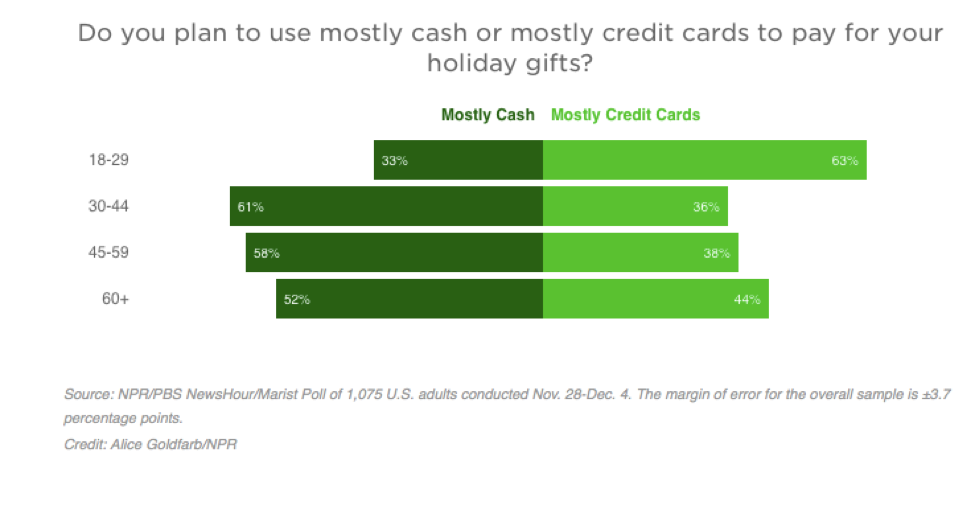Millennials appear to be living out a Nietzsche style crisis these days—battling with contradictions of both Dionysian and Apollonian extremes. It’s the hunt for the perfect human being this Christmas—or this ‘Holiday Season’.
A new poll conducted by NPR, PBS NewsHour and Marist, shows that adults under 30 prefer to fund Christmas with plastic, not cash, and prefer to greet their fellow comrades with “Happy Holidays” rather than “Merry Christmas”. But they also love crypto, and would happily invest in bitcoin over real property, for instance.
Eschewing Christmas greetings and cash are both things that would have gone down well in Orwell’s 1984—a horror that haunts Baby Boomers and many Gen-Xers. Cash is one of the last remaining bastions of privacy, and “Merry Christmas” has religious connotations that belong to the individual, rather than the masses who can easily be lumped into a blanket “Happy Holidays”. Millennials, though, aren’t bothered by the threats to privacy that comes with buying everything on plastic for the record and giving up personal data to the corporate gods to share widely to psychoanalyze you in order to find out what they can sell you next.
Crypto seems to fly in the face of this from a philosophical standpoint: It is (for now) the exact opposite of cash—a decentralized, anonymous way to make transactions.
According to the NPR/PBS/Marit poll, adults under 30 represent the only age group of holiday shoppers that prefers to pay for everything with plastic—and they have massive purchasing power in the U.S., so it matters quite a lot that 63 percent of Millennials planned to use “mostly credit cards” for gifts, while older age groups planned to use “mostly cash”.

(Click to enlarge)
Why? Well, many of them simply like the convenience of it all—and the points. They shop around for the best credit cards offering the best rewards. And there is yet another contradiction here, as well, as NPR points out: They may be boosting the credit card business to some extent, but they are also harming it because they are thought to be more worried about debt, so avoid getting too deep into the credit game.
Perhaps Millennials don’t have a philosophy as such at all when it comes to financial transaction. If privacy isn’t an issue, and crypto isn’t about anonymity, then the game plan is reduced to one simple idea: Anything digital goes.
With that in mind, the poll also showed that adults under 30 are the most likely to buy the bulk of their gifts online, eschewing yet another Christmas tradition: physically going Christmas shopping. Only 25 percent of under-30 holiday shoppers said they wouldn’t buy any gifts online, while half of the holiday shoppers over 60 said the same.

(Click to enlarge)
And in the meantime, the Christmas spirit is waning among Millennials, whom the poll says prefer to tell people “happy holidays” in December, rather than ‘Merry Christmas’—and if they have a tree, it’s likely to be artificial to avoid waste.
In total, 53 percent of Millennials under 30 choose the ‘happy holidays’ greeting, according to the poll. In part, that’s likely because they are a very diverse generation, and thus the only group to make this choice in the majority.
It’s a notion that is both thoughtful and … not. What it suggests is a lack of knowledge of what others in their group celebrate this season. Perhaps the better philosophy amid all this cultural confusion during the holiday season is to embrace the individualism that the digital world is breaking down bit by bit and find out what everyone in your circle celebrates and greet them accordingly.
By Fred Dunkley for Safehaven.com
More Top Reads From Safehaven.com:
















